|
The Alawite regime in Syria has by and large won a series of impressive tactical victories. Fighting is not yet over, however mere mop-up operations and rebel raids remain. The war has been costly, as bloodshed has already claimed more than 10,000 lives in Syria. To that point, the existing sectarian tensions and the asymmetrical nature of the conflict, mean that Syria is likely to endure a prolonged low-level insurgency for some time. With Assad no longer clinging to power, his military successes’ highlight the regime’s overall mastery of sectarian divisions, and the premier factor for his sect’s ability to rule Syria for over four decades. Needless to say, without mastering those divisions – mainly the ethnic and religious minorities against the Sunni Arab majority – Syrian military gains and continued Alawite rule would have been impossible. Furthermore, Assad agreed to a recent UN-brokered ceasefire after he and his advisers likely calculated that they could officially declare an end to the fighting with the upper hand, which could theoretically offer him greater leverage in post-conflict negotiations. However, those negotiations are unlikely to happen any time soon, as militants within Syria and their supporters abroad are unlikely to recognize any peace deals with Damascus in the near future. Simply, their intransigence towards negotiating will serve to show that the Assad regime is an illegitimate ruler of Syria. Even so, immediately after the fragile agreement was being announced, Assad’s forces stormed the population centers of al-Mazareb, Khirbet Ghazale, Homs, Latame, and Saraqeb, showing once again that it is on the offensive and reaffirmed that it has the upper hand. Although the ceasefire is by and large holding, it remains unlikely that it will last in the near term, given that there still exists fighting on both sides throughout Syria and the opposition’s reluctance to re-accept Alawite rule. On the diplomatic front, Russian Foreign Minister Sergei Lavrov recently warned Sunni Arab and Western states against continuing to arm Syrian rebels by saying, even if they were “armed to the teeth”, they will still lose. Russia’s warning shows that Moscow is indeed confident that Assad’s regime will stay put. But most importantly for the Kremlin, Russia has been successful, along with other powers, in deterring its Western rivals from taking more aggressive action in Syria. At present, Assad and his army have by and large defeated the potency of Sunni militants in Syria. The current low-level insurgency does not pose an existential threat to the regime in Damascus for the near future and desperate calls for intervention are unlikely to bear fruit any time soon. In addition, after regaining greater stability within Syria, Assad’s regime will likely seek retaliation against those entities that increased their meddling in the country. Chiefly, Assad could use his sectarian allies, such as the Kurdish PKK – a new ally, the Alevis in Turkey, Hezbollah, and minority Shiites across the Middle East to punish those actors who acted against him, mainly Turkey, Saudi Arabia, and Qatar. Assad’s victories have shown that the era of dictatorial rule is indeed not over and the forces which promoted the ousting of Qaddafi in Libya and Mubarak in Egypt, are losing the current battle in Syria. Moreover, those who predicted Assad’s demise soon after protests broke out over a year ago- spoke to soon. For his continued rule highlights that despite claims that the new era of the “Arab Spring” would bring sweeping democracy throughout the Middle East, sectarianism prevails. For up to date analysis on the Syrian conflict, click here. |
Tag Archives: Arab Spring
The Arab Spring: The Decline of the Arab Nation-State?
By Danny B.
The “Arab Spring,” simplistically coined as a regional freedom and democracy movement, is leading to protracted periods of sectarian fighting and an accelerated breakdown of the Arab states.
The genesis of Arab states is in mandates maintained by European powers, Britain and France, following the collapse of the Ottoman Empire in World War One. The Sykes-Picot Agreement, with reluctant consent from Moscow, carved up zones of influence for the two colonial powers in the Middle East. As a result, newly independent Arab states were hastily crafted without much consideration for outstanding sectarian conflicts. Generally speaking, concepts of nation-states are rather foreign to the region, thus a lack of unifying narratives, combined with outstanding internal sectarian conflicts, and destined these Arab states to be plagued with a myriad of seemingly irreversible problems.
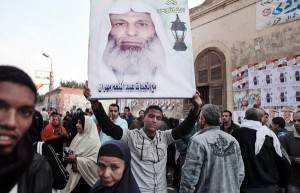
For decades, Arab states have attempted to establish a variety of political platforms to ensure economic growth, security, and increase sovereign power. Excluding the oil-rich GCC monarchs, the political concepts of Arab socialism (Baathism), pan-Arabism, and secular-nationalism have failed. Then the collective Arab defeat in the Six Day War against Israel, compelled many in the Muslim world to seek a new sociopolitical answer to the Jewish State and the West. Their defeat, in addition to other factors, was one catalyst for the Islamic awakening in those nations. That said, moderate political Islamic movements, like the Muslim Brotherhood, endured decades of modest, yet solid beginnings as a result of suppressive secular dictatorships. But with the weakening or ousting of these leaders, the political Islamists have seized the initiative, thus set to rule many Arab states. Most surprising however, are the unprecedented gains by more radical Salafist sects throughout the region – at the expense of inept liberal parties – which has propelled them to lead the new opposition against their new rivals, the Muslim Brotherhood. It is important to note that Salafist Islam comes in various degrees, but the their burgeoning influence results from the work of the most radical Salafists. Their surge has become one of the most important consequences of the “Arab Spring.” For these reasons, this Salafist stream now appears to be the primary obstacle for more moderate political Islam, embodied in parties such as the Freedom and Justice in Egypt, or the Ennahda Party in Tunisia.
Continue reading The Arab Spring: The Decline of the Arab Nation-State?
Syria’s Sectarian War of Attrition
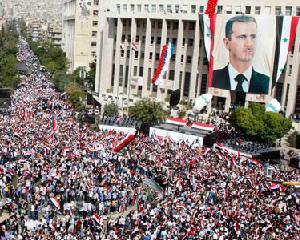
Syria’s sectarian fault-lines have been drawn for centuries and the opposition has been unsuccessful in diminishing the importance of such divisions. Most importantly, they failed to convince Assad’s forces to defect en mass, thus Syria’s military remains a cohesive, effective, and motivated fighting force. Meanwhile, Al-Qaeda’s recent call for jihad against the Alawite regime will be unhelpful in persuading minorities to abandon it. Furthermore, Damascus has prepared for an internal Sunni uprising for over four decades and while many are quick to predict Assad’s demise, his ouster would not end the sectarian conflict in Syria. Ultimately, the conflict’s sectarian character, which is often overlooked, along with several other important factors is leading to a long and bloody civil war in Syria. Continue reading Syria’s Sectarian War of Attrition
The Kremlin’s Syrian Gambit
By Yagil B. and Danny B.
Russia’s continued support for Syria is no more than a coldly calculated move meant to bolster its position as global super power.
Russia sent a strong message to the West earlier this month when its aircraft carrier, the Admiral Kutznetsov, docked in the Syrian port of Tartus amidst much bravado. Since that time, the Kremlin has unabatedly remained steadfast in its diplomatic support for the embattled regime by threatening to block any punishing UN Security Council resolutions, drawing the ire of the Sunni Arab world. on January 27, Moscow said a UN draft that condemned Bashar al-Assad and called for his ouster, failed to address Russia’s interests. Like Iran, Russia continues to demonstrate its loyalty to the embattled Alawite-led Assad regime, even as it becomes ever more isolated within the Arab League and the international community.
Continue reading The Kremlin’s Syrian Gambit
Bahrain’s Community Policing Challenge
Reforming much-hated security forces are the first step in resolving the Island nation’s sectarian conflict before it deteriorates further.
As Bahrain braces for the year anniversary of the outbreak of its protest movement, worrying trends are beginning to emerge in the activity of its Shia-led activist groups. Since February 14 2011, the opposition’s modus operandi consisted of mostly civil disobedience acts aimed at drawing the world’s attention to the inequality facing the Shia majority. In past months however, activists have stepped up acts of violence, mainly aimed at security forces, whose alleged brutality has come to symbolize their oppression at the hands of the Sunni monarchy.
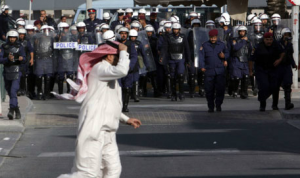
On January 24, opposition groups launched a campaign dubbed “the Rebel’s grip” aimed at expelling the regime’s security forces from Shia villages in the central and northern parts of the Island. The campaign comes days after a prominent Shia cleric issued a particularly scathing sermon, calling for supporters to assault any security personnel suspected of attacking female protesters. The opposition’s rage towards security forces comes after a year of high profile incidents involving protesters’ deaths as a result of police brutality. Many of these incidents were caught on video, spread through social media and ingrained in the minds of activists.
What’s behind Egypt’s new balance of power
By Daniel N.
Despite the media’s love affair with the anti-SCAF activist movement, the Egyptian revolution has already been secretly decided.
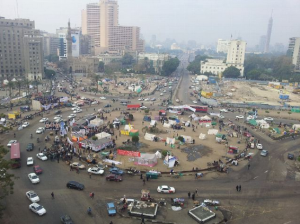
After the tense buildup to the anniversary of the revolution, Egypt’s new ruling elite can breathe a sigh of relief. While tens of thousands of liberal activists swarmed Tahrir Square agains
t the military leadership, they failed to rehash the nationwide anger which led to the ousting of Hosni Mubarak on January 25 of last year. It seems clear that after a year of political unrest, sectarian violence, civil strikes, and economic turmoil, the majority of Egyptians have opted to ensure their security, even if it means forgoing the original goals of the revolution. This security has been achieved by the emergence of a new balance of power, carefully negotiated against the backdrop of parliamentary elections between the Muslim Brotherhood and the ruling military council.
In Libya, The Militias Have The Upper Hand
By Daniel N.
In the absence of collective nationalism, the transitional government must buy the loyalty of renegade militias with resources it may not have.
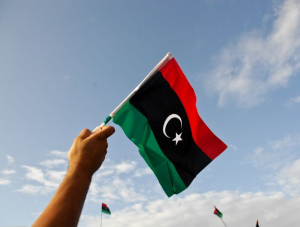
Libya is currently undergoing a critical phase of its transition process, as the recognized government (NTC) attempts to assert its power over the country. The focal point of these efforts lies at the reformation of the Libyan national military. In post Gaddafi-Libya, this feat requires garnering the trust of powerful tribal militias, many of whom are reluctant to relinquish their hard-fought positions acquired during the civil war.
Efforts to establish a national military reached a crucial phase in January, when the NTC named Yussef Al-Mangush as chief of staff. The appointment has since been rejected by two powerful coalitions of tribal militias; the Thwars coalition, which includes the Misrata and Zintan factions; and the Cyrenaica Military Council (CMC), composed of militias in eastern Libya. Continue reading In Libya, The Militias Have The Upper Hand
The Battle For Arsal
By Daniel N.
One unsuspecting Bekaa Valley village has become the focal point of the battle for perceptions of the Syrian conflict.
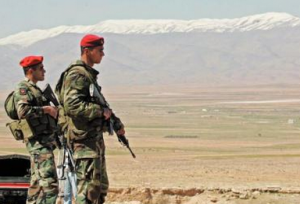
Immediately after another deadly suicide bombing ripped through central Damascus on Friday, the Assad Regime, the Syrian opposition, and their allies abroad unloaded accusations as to the identity of the perpetrators. While opposition’s assertion of a regime-orchestrated conspiracy has fallen on deaf ears around the world, this latest bombing certainly bolsters Assad’s claim that radical Al Qaeda-linked militants have joined the ranks of collective struggle to topple him. Regardless of the actual perpetrators, both Assad and the opposition understand that perceptions of Syria descending into sectarian chaos only further cement the international community’s hesitation to expedite his ousting. At the base of Assad’s claims lies the town of Arsal, a sleepy village in Lebanon’s Bekaa Valley, whose unsuspecting citizens have become embroiled in a heated debate which may just decide the outcome of the Syrian conflict.
Arsal was catapulted into the global spotlight immediately after twin car bombings struck Damascus on December 23, 2011. After the attacks, Syrian officials based their claims of Al Qaeda involvement on statements made days prior by Lebanese Defense Minister Fayez Ghosn, who stated that Jihadists were infiltrating into Syria through illegal border crossings. Ghosn claimed that Arsal, a Sunni village of 40,000 people located 35 kilometers from the Syrian border, had become a hotbed for these activities. The statements sparked outrage amongst Arsal’s residents, who claimed that there was little evidence to suggest that the town was harboring Al Qaeda extremists. While village elders admitted that some local mosques were known as bastions of fundamentalism, they enjoyed little influence over the town’s residents. In the days that followed, Arsal became the focal point of a heated debate in Lebanon over the existence of Al Qaeda extremists in the country. Continue reading The Battle For Arsal
Pentagon Budget Cuts: A Cause For Concern?
By Jay R.
What does a ‘leaner’ American military mean for the Middle East? In a word: Proxies.
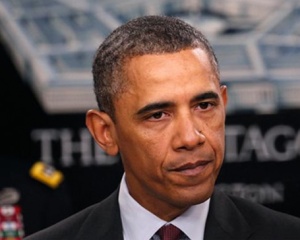
On January 5, President Barak Obama announced from the Pentagon that the American defense budget was going to see significant cuts – approximately 500 billion dollars over the next ten years. The announcement sounded alarms both at home and abroad, with many concerned that the United States would surely lose its military superiority and squander its influence in the Middle East. However, such concerns are baseless and unfounded as the United States will continue to maintain a military budget that is greater than the next top ten military spenders combined.
Over the last decade, the United States has been involved in two counterinsurgency wars – Iraq and Afghanistan – totaling a cost of nearly 1.3 trillion dollars. Participation in the Iraq conflict has ended and the US is slowly drawing down its forces in Afghanistan in anticipation of a 2014 exit. The ending of these two wars will significantly absorb the budgetary cuts that the Obama administration is planning. Furthermore, the United States government and citizenry alike have lost all appetite for any military commitment that would result in the deployment of its troops to the Middle East again, therefore diminishing the likelihood for their reappearance anytime soon. Continue reading Pentagon Budget Cuts: A Cause For Concern?
Egypt’s Anti-Western Future: Rhetoric or Reality?
By Ron G. and Daniel N.
Despite the risks, both the SCAF and the Muslim Brotherhood have much to gain by exploiting anti-western conspiracies which are rooted in Egyptian Society.
Egypt continues to reel from the aftermath of the recent high profile raids against foreign-backed NGO’s by state security forces. Egyptian human rights watchdogs have condemned the raids as an effort by the SCAF to subdue the groups which are fomenting criticism against its policies, while ignoring the large amounts of funds being illicitly transferred to Islamist parties from the Persian Gulf. The United States and European Union have also stepped up their criticism, with Washington hinting at cutting off its longtime financial aid package.
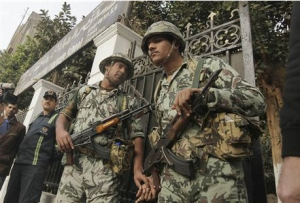
The American threats have sparked an outcry amongst Egypt’s conservative groups, including the Muslim Brotherhood’s Freedom and Justice Party, which is slated emerge the dominant party in parliamentary elections. The FJP’s legal advisor, Ahmad Abu-Baraka, said on Sunday that the party will ask the newly-elected parliament to abolish the US aid, which he claimed “serves as a means to interfere with Egypt’s internal issues’; reportedly adding that ‘America and its money can go to hell”.
American foreign aid to Egypt is estimated at roughly 2 billion dollars annually, with $1.3 billion infused to military support. Egypt has enjoyed this financial support since the signing of the peace treaty with Israel in 1979, in which the aid was a crucial factor in keeping the country’s crumbling economy functioning at a basic level. Most recently, governmental officials have warned that Egypt’s national economy is currently facing its most serious crisis in years. Since the January 2011 revolution, the economy has suffered repeated blows to tourism and foreign investment as a result of the unrest, in addition to ongoing attacks on its natural gas pipeline in the Sinai Peninsula. Continue reading Egypt’s Anti-Western Future: Rhetoric or Reality?